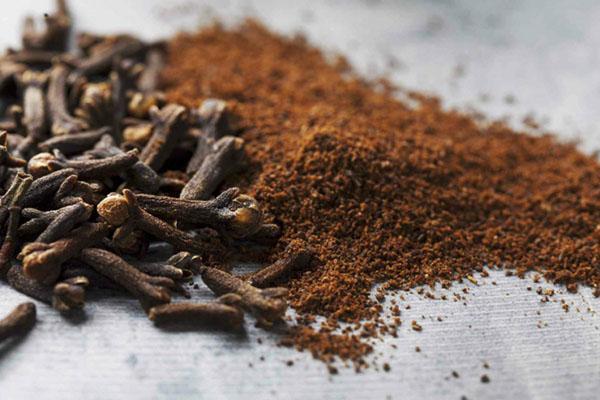The benefits and harms of cloves from the point of view of science
 The aromatic spice takes pride of place in the culinary arts of many eastern nations. The benefits and harms of cloves have been known for centuries. Many people perceive it not at all as a product or a spice. For them, it is a remedy for all diseases. It can cure cancer, fight parasites, and improve digestion, according to some. You can check its effect on yourself or using laboratory experiments.
The aromatic spice takes pride of place in the culinary arts of many eastern nations. The benefits and harms of cloves have been known for centuries. Many people perceive it not at all as a product or a spice. For them, it is a remedy for all diseases. It can cure cancer, fight parasites, and improve digestion, according to some. You can check its effect on yourself or using laboratory experiments.
In ancient China, the emperor was allowed to be greeted only after the guests underwent a ritual of freshening the breath with a dried flower riot. This method is still relevant today.
The benefits and harms of cloves: at the sight of scientific laboratories
Such an experiment was carried out. Ground spice (stored for 12 months) and dried whole buds were placed in the same solution with bacteria. After several days, it was found that unicellular microorganisms develop more readily in a powder suspension than in a real extract. Why is this happening? The antibacterial effect of cloves is only possible thanks to essential oils. They evaporate very quickly if the product is crushed. And for a year in such a mass, very few of them remain. You can use these properties in everyday life:
- Remove bad breath. One has only to chew 1-2 flowers, as the fetid amber will be replaced by a delicate aroma.
- Apply an antiseptic tincture. Alcohol is poured into 50 g of raw materials. Infusion disinfects cutting boards, which serve as breeding grounds for E. coli. They also wipe the seams between the tiles in the bathroom to protect the material from mold.
- Try culinary improvisation. Add spice to marinades, especially when mushrooming... When combined with coffee, it gives a heady aroma.
100 g of flowers contain 80 mg of vitamin C, which is the daily requirement. However, it is not consumed in such quantity. Therefore, the plant is not considered a source of valuable substance.
The benefits and harms of cloves have long been studied by scientists from Chinese universities. Most of all they are interested in one of the essential oil components - eugenol. It is able to inhibit the development of cancer cells. For this reason, the intoxicating spice is used in Indian medicine as a preventive measure.
How to determine the quality of a product?
Often, houses of this kind can be found in whole deposits. A simple experiment will allow you to test it for suitability. Water is collected in a transparent container and the buds are thrown. If they stick to the surface, then the spice is suitable for consumption. It is still rich in essential oils.
It cannot be stored in the refrigerator, because the product deteriorates due to sudden changes in humidity and temperature. This rule applies to all solids. The dishes are tightly closed and sent to a dark, cool place.
Most often, the spice is present in marinades, and women in a position should not eat such dishes. Although it is not contraindicated for pregnant women, breastfeeding women need to be careful with her. The spice is able to saturate milk with its aroma, which may not please the baby. Therefore, he is unlikely to appreciate the benefits and harms of cloves.